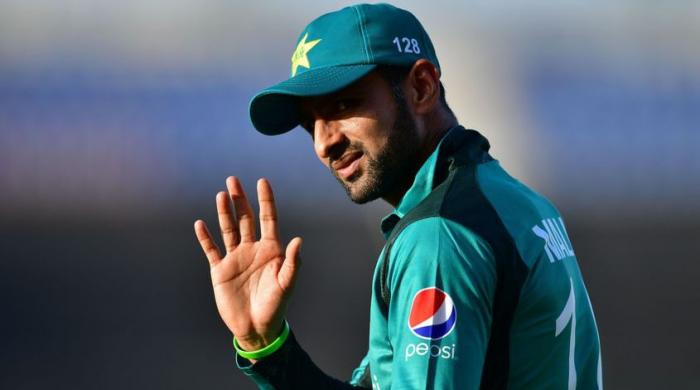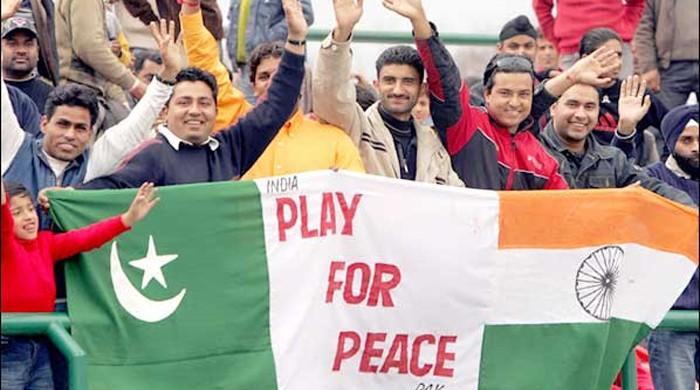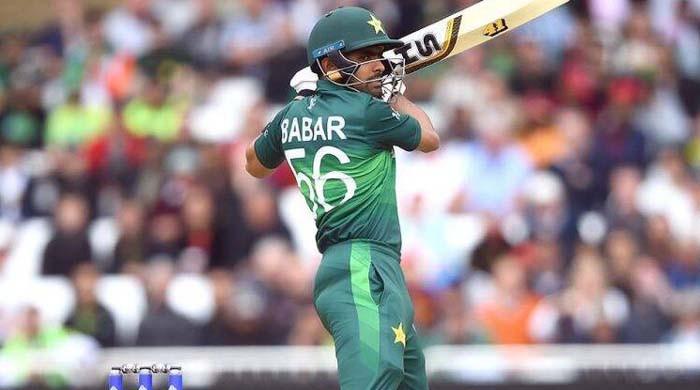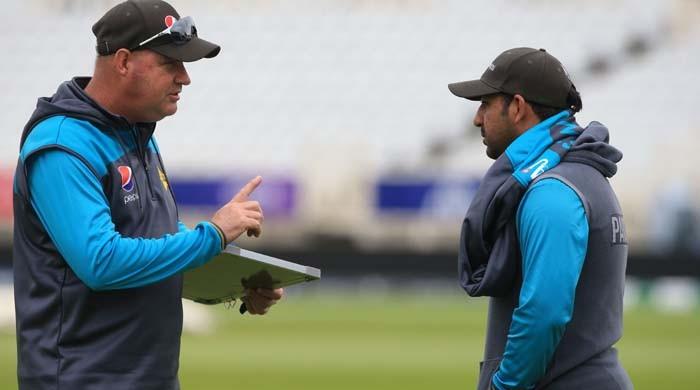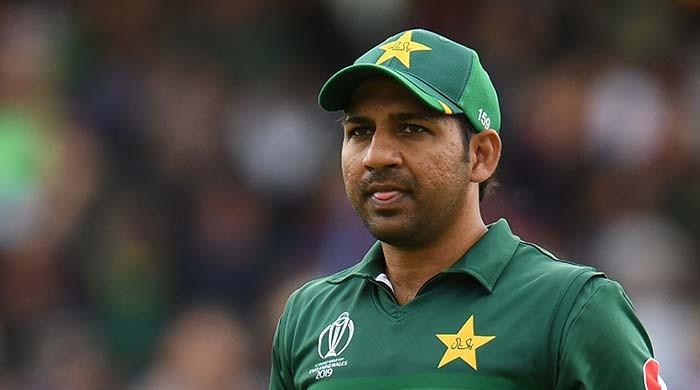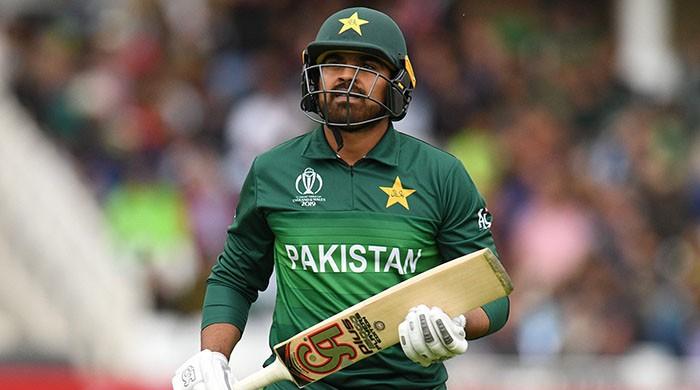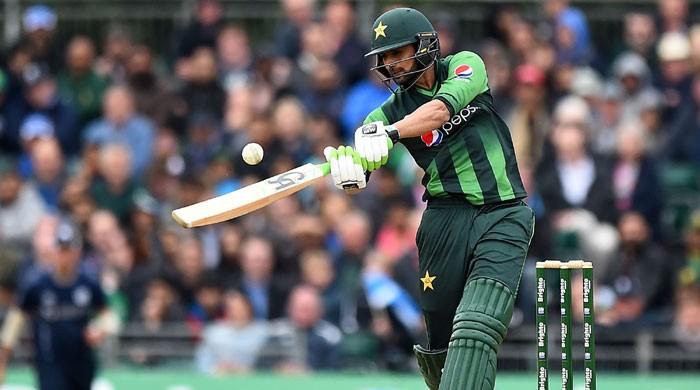In Pakistan’s heartbreaking exit, Babar Azam and Shaheen Afridi shine the brightest
Pakistan's World Cup dream may be over, but in Babar and Shaheen, the team found a core that can only go from strength to strength
July 06, 2019
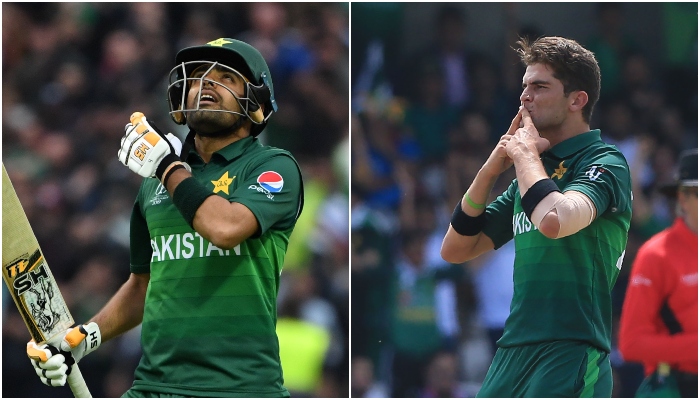
I don’t remember the last time an exit from the World Cup hurt this bad. I tried to talk to the fans I know to find out how they were feeling, and they couldn’t remember either. Perhaps, it was the promise of so much more.
Just when Pakistan were peaking to become the most Pakistan they’d ever been, when they had bounced back from a nightmarish start against the West Indies and healed from the woeful defeats against Australia and India. Just when they had finally figured out the winning combination in Haris Sohail and Shaheen Shah Afridi, and when the younger Afridi found his form and unleashed himself on the opponents. Just when the “other” Pakistan turned up, as Michael Vaughan so amusingly says, to beat England, South Africa, New Zealand, Afghanistan, and Bangladesh.
Five wins from nine games, and a washout. Only three defeats. This shouldn’t have cost Pakistan the World Cup, except it did. The terrible NRR – a result of the collapse against the Windies – came back to haunt the Men in Green when they needed to leapfrog New Zealand into the top four, but it was too late by then. The damage was already done.
As I – and many others – pick up the pieces of our hearts and try to heal from “what could have been”, perhaps the biggest solace comes from having watched with pride Babar Azam living up to his potential as Pakistan’s best batsman in the current times, and the teen pace sensation Shaheen Shah Afridi stealing back his mojo to shatter the opposition’s batting.
Brilliant Babar
Babar Azam, Pakistan’s best-ranked batsman, carried the bulk of the nation’s expectations going into the World Cup and, up to the final group game against Bangladesh, remained one of the few silver linings in the team’s heart-wrenching exit from the tournament. On Friday, the 24-year old broke yet another record when he went past batting legend Javed Miandad to become the highest run-getter for his country in a World Cup.
Miandad had scored 437 runs from nine World Cup matches in the unforgettable 1992 tournament. Babar amassed 474 runs from eight matches (Pakistan’s game against Sri Lanka was washed out) at a stunning average of 67.71 and strike rate of 87.77. His stellar performances included a match-winning knock of 101 not out against New Zealand, and three fifties in the World Cup.
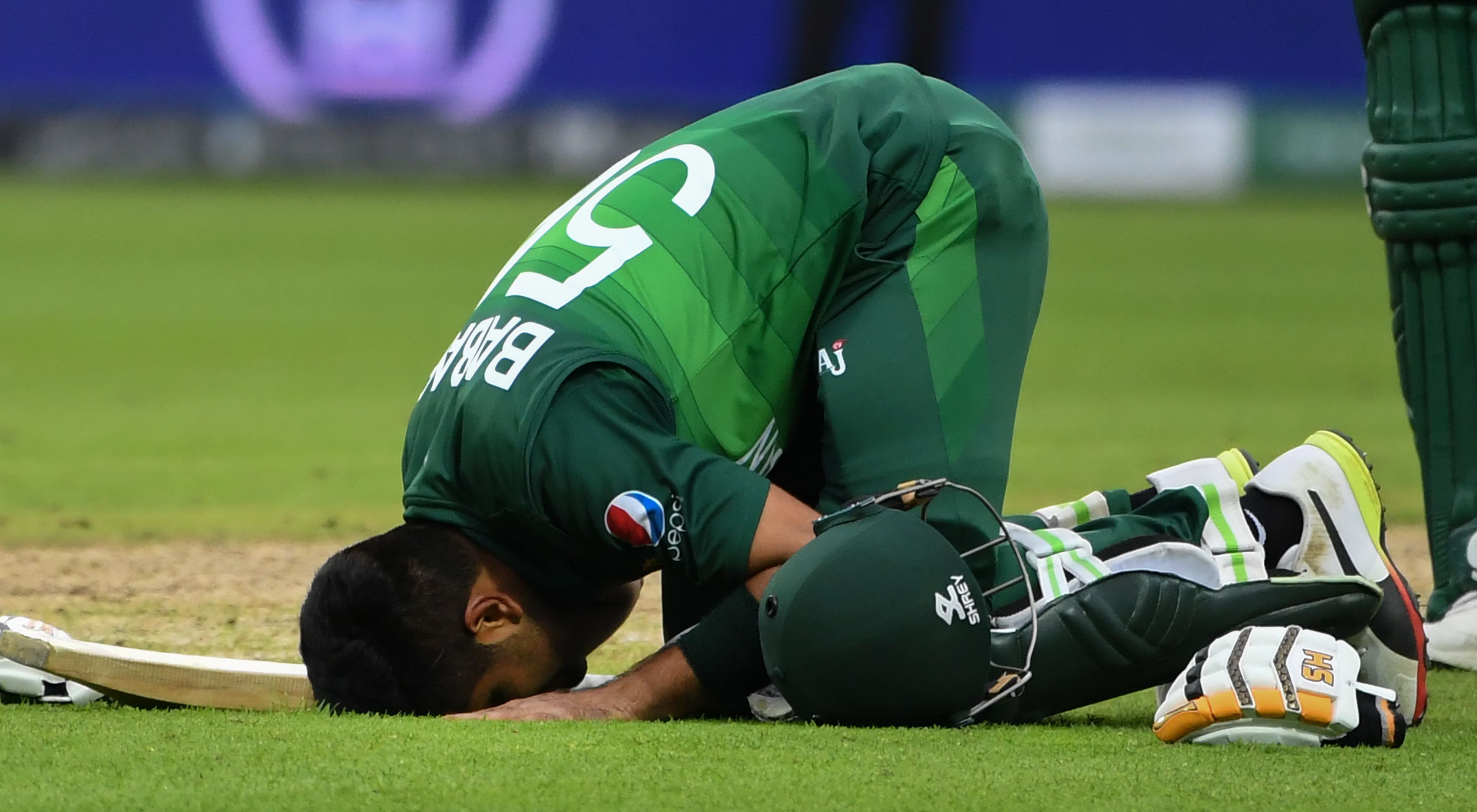
Babar, whose artsy batting even prompted Ian Bishop on commentary to liken his cover drives to Picasso’s paintings, fell just four runs short of what would have been his second hundred in this World Cup and a name on the Lord’s honours board. But he has achieved so much in this World Cup alone – his first ever – to be proud of already.
Against New Zealand, he became the second fastest batsman in the world to reach the milestone of 3,000 ODI runs, behind only Hashim Amla of South Africa and leaving behind West Indian legend Sir Viv Richards on the third spot. In doing so, he became the fastest Pakistani to join the 3,000 club, surpassing Inzamam-ul-Haq by 19 innings. He even raced past India captain Virat Kohli in taking fewer innings each time to reach 1,000, 2,000 and 3,000 ODI runs.
Babar’s century was also Pakistan's first in a Cricket World Cup scored by a non-opening batsman since 1987.
Head coach Mickey Arthur wasn’t wrong when, after Friday’s match against Bangladesh, he said, “The good, pleasant dreams I'm going to have are of Babar Azam.”
Sensational Shaheen
The 19-year old Shaheen Shah Afridi was at probably the lowest point in his career coming into the World Cup, and was sidelined for Pakistan’s first two matches, against West Indies and England. He was trusted to perform against Australia, where he bagged two wickets but proved expensive, seeping 70 runs off his 10 overs. He was dropped again versus India, and brought back against South Africa. Not much good again. One wicket, 54 runs off eight overs. Pakistan were able to beat the woeful Proteas, but it was frustrating to see the younger Afridi failing to pitch the ball up.

Thankfully, he wasn’t dropped again and burst back into the reckoning against then-unbeaten New Zealand, with a three-wicket haul at an economy of just 2.80. There was no looking back from then on.
The paceman took a four-for against Afghanistan and a six-wicket haul in Pakistan’s 94-run thrashing of Bangladesh, taking his tally in the World Cup to 16 wickets and becoming the youngest ever cricketer to take a five-for in the tournament’s history.
Shaheen also has the most wickets by a teenager in World Cups, and the best figures by a Pakistan bowler at a World Cup. Not bad for your first World Cup at all.
Pakistan's World Cup dream may be over, but in Babar Azam, Shaheen Shah Afridi and other youngsters, the team has found a core that can only go from strength to strength.
The writer is a cricket freak and producer at Geo. Tweets @Mariaa_54
Originally published in Geo Super




